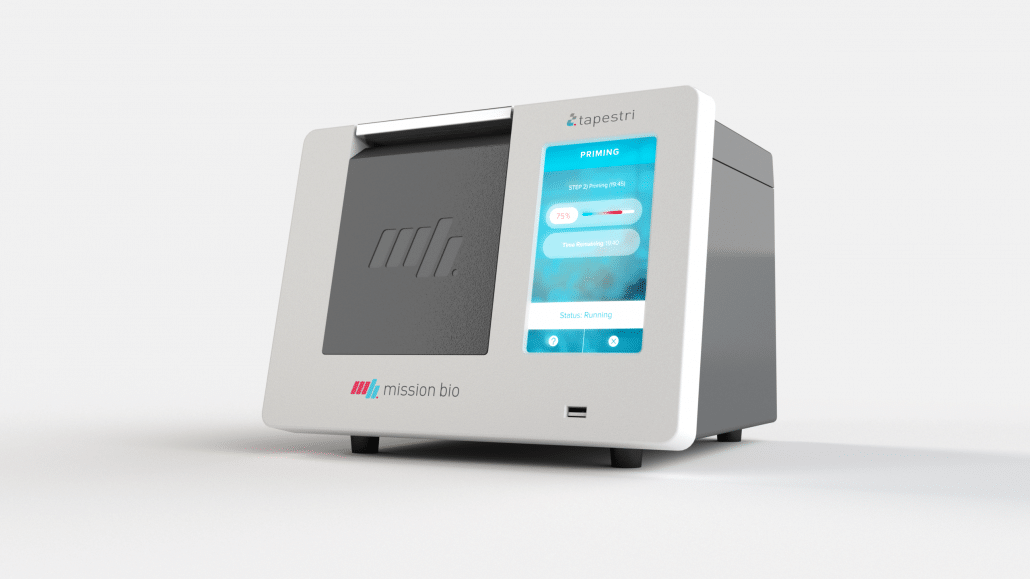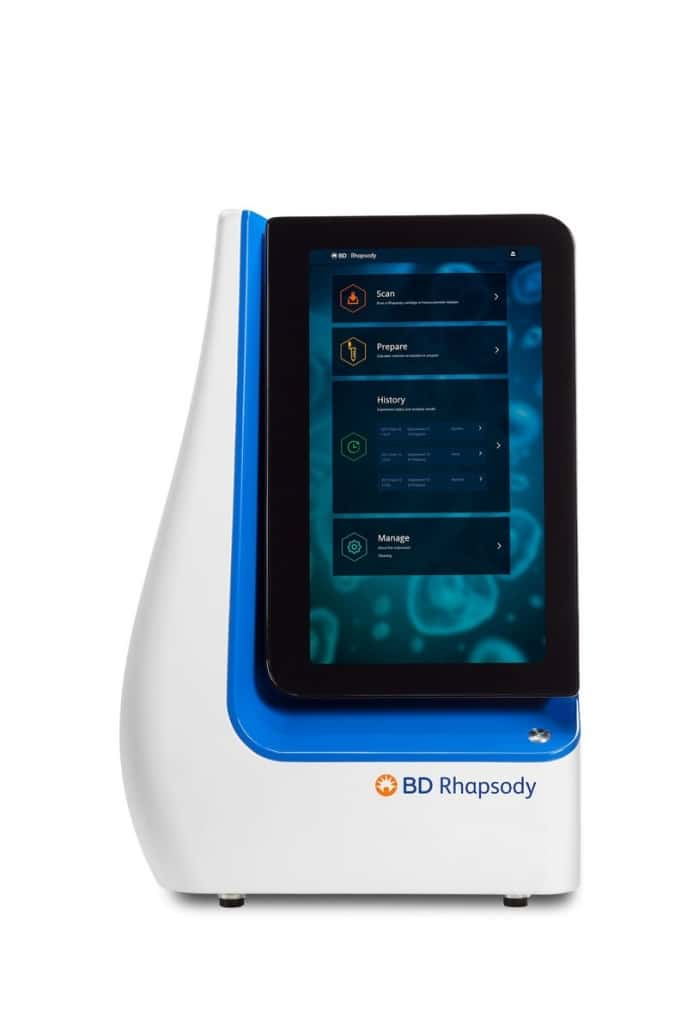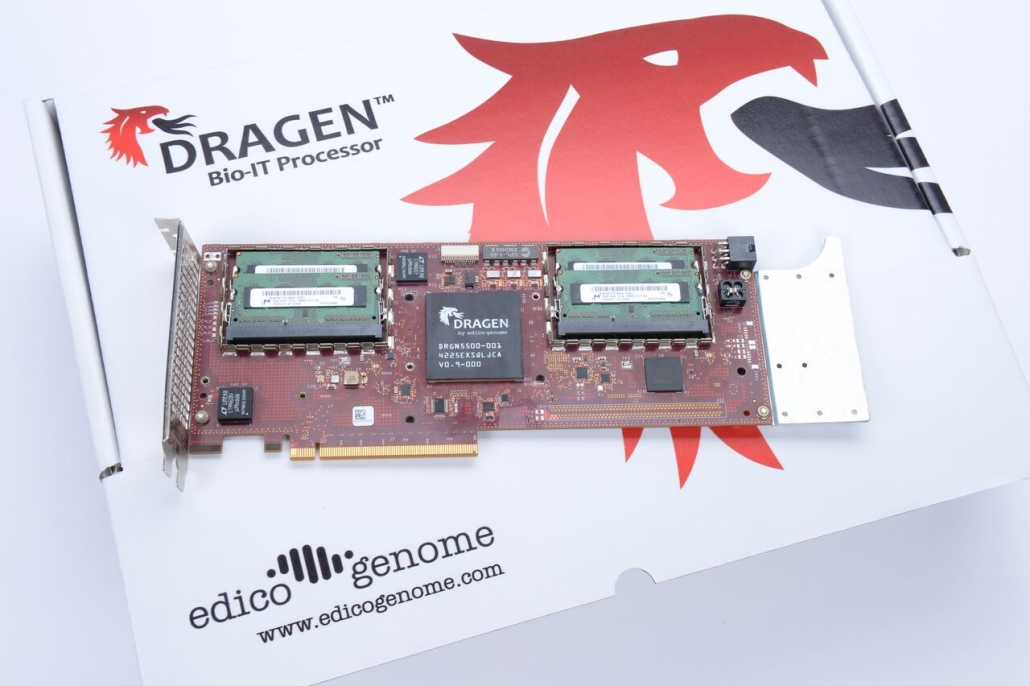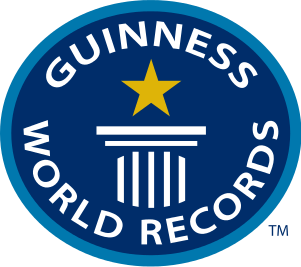News: ASHG 2017: New Single-cell, CRISPR and NGS Products Highlight Lab Technology’s Progress

MissionBio Tapestri platform
At the show, MissionBio announced a microfluidic system to analyze single-cell DNA capture and barcoding, the Tapestri platform. While most single-cell systems support transcriptome analysis, the Tapestri is able to barcode and capture genomic DNA for analysis of the heterogeneity of cell populations—key when monitoring cell populations in disease progression, treatment and post-treatment monitoring. The initial launch application of the Tapestri is an Acute Myeloid Lymphoma Assay, targeting 19 genes associated with this disease. MissionBio also announced it will be providing research grants to customers interested in developing custom panels for use on the Tapestri. The Tapestri platform is ready to ship and costs $79,500 for the system, with a cost per assay of $795.

BD Rhapsody single cell analysis system
BD released its Rhapsody Single-Cell RNA-Seq platform that allows for the analysis of targeted panels of transcripts at the single-cell level with less amplification bias than is typical in whole-transcriptome profiling. The system launched with preconfigured panels and the promise of additional panels containing genes of interest to be added in the coming months. BD also plans to combine protein analysis solutions (AbSeq) with the platform to analyze the correlation of transcription of targets and the correlated protein on the cellular level. BD stressed the reduction in costs for sequencing can be achieved through the use of targeted panels rather than through the broad sequencing of the whole transcriptome. The cost of the platform is competitive with other high-throughput platforms, according to the company. The platform is currently shipping, with the AbSeq protein detection system expected to be launched in the first half of 2018.
Agilent Technologies introduced an expansion of its SureGuide CRISPR library portfolio that allows for activation/inhibition (a/i) assays used in the location and identification of genes involved in a disease response. Agilent constructs its SureGuide a/i products using its SurePrint DNA synthesis platform, allowing for extremely high accuracy of the constructs.
Bio-Rad Laboratories highlighted the success of its droplet digital PCR (ddPCR) platform across a range of new applications for single-cell analysis, including detection of mutations in iPSCs prior to treatment, ab initio detection of lung transplant rejection and detection of rare variants in expression profiles that lead to cancer growth. Bio-Rad also noted the quick adoption of its ddPCR platform for the rapid and sensitive validation of CRISPR constructs.
Like Bio-Rad, at ASHG, Thermo Fisher Scientific talked about the success of its products in specific applications; for example, enabling the detection of the genetic understanding of hearing loss, the use of its recently launched SeqStudio Genetic Analyzer with their XON Suite (in early release) for exonic deletion and how duplications detection is improving productivity in its release partner’s clinical research laboratory.
Pacific Biosciences Chief Scientific Officer Dr. Jonas Korlach gave an update on the Pacific Biosciences (PacBio) roadmap, and discussed the advantages of the PacBio Sequel’s impressive ability to annotate insertions and deletions in well-characterized genomes relative to Illumina, 10x Genomics, Oxford Nanopore and Bionano Genomics’ technologies. Dr. Korlach highlighted that the PacBio sequencing affords the highest sensitivity for determining structural variation with the lowest false positive discovery rate. Dr. Korlach also recounted that PacBio sequencing is noted in 4–5 papers published in the scientific literature per day, noting applications such as Full-Length RNA Sequencing (i.e. Iso-Seq), lncRNA, amplification-free sequencing for the detection of rare variants in cancer, and the replacement of Sanger sequencing amongst other applications. In addition, he gave an update on PacBio’s product developments that highlighted improved library prep, SMRT cell capacity and bioinformatics improvements.


In what might be a first for ASHG, Edico Genome was awarded a Guinness Book of World Records record on-site for the fastest secondary analysis of one thousand human genomes. They completed the task using data from the Children’s Hospital of Philadelphia in 2 hours and 25 minutes. The feat highlighted its DRAGEN platform’s use of cloud-based secondary analysis software that analyzes whole-genome samples in approximately 20 minutes. Edico Genome also announced a partnership with Fabric Genomics at the show for downstream analysis of DRAGEN-analyzed data using Fabric Genomics Opal Clinical variant interpretation platform.
To read the full article along with a spotlight on PerkinElmer’s new NGS solution debut, click here to receive a free trial subscription to the Instrument Business Outlook Newsletter.
If you are already a subscriber, click here to view the full article.




